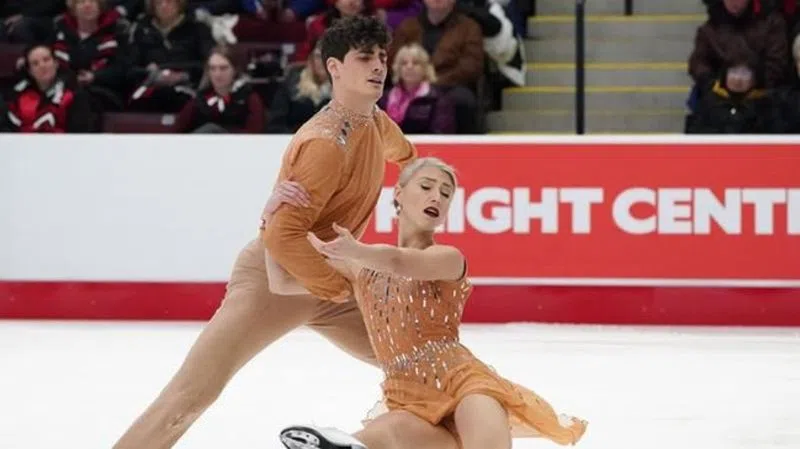
Sadovsky upsets Messing, Nguyen to win Canadian figure skating title
MISSISSAUGA, Ont. — The battle for Canada’s lone berth in men’s singles at the world figure skating championship was destined to be a dogfight.
But the toughest part for Roman Sadovsky on Saturday night was watching the skaters that took the ice after him.
The 20-year-old from Toronto won his first Canadian figure skating title, setting the standard with two clean quadruple jumps and a score of 260.57.
Then Sadovsky sat nervously and watched as pressure got the better of both Keegan Messing and Nam Nguyen. They both fell twice.


